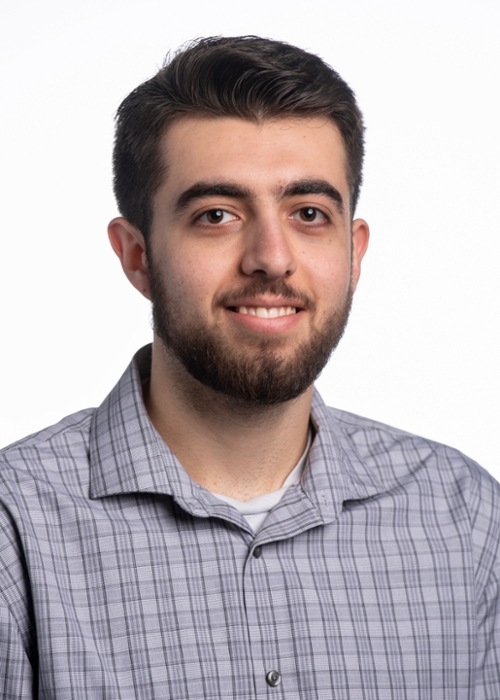Software Engineering Student Benefits from UNB-Siemens Canada Partnership
Author: Engineering Alumni Office
Posted on Sep 18, 2020
Category: Student Spotlight

When university-industry partnerships come together like the one between UNB and Siemens Canada, it’s a beautiful thing for student experiential learning.
Amir David, a software engineering student entering his final year at UNB, found that out first hand over the past summer.
Amir was hired through the Siemens Canada Engineering and Technology Academy (SCETA) program, which is a Work Integrated Learning Program to equip students with the educational and professional foundation required for successful careers in engineering and technology.
In 2019, UNB signed an MOU with Siemen’s Canada to hire up to 5 students/year in the Electrical Engineering, Software Engineering or Computer Science programs through UNB's Engineering and Science Co-op Program.
SCETA works like this:
- Students spend two 4-month terms at Siemens Canada where they learn through a variety of learning methodologies including classroom, e-learning, Siemens systems and product training, mentorship rotations across business units, and hands-on experience in various areas of applications.
- The first term takes place from May-August prior to their final academic year and the second term takes place after graduation from May-August
- Students are hired by Siemens Canada and paid a student full-time salary throughout their enrollment with SCETA
- Siemens provides tuition allowance while they are enrolled with SCETA for up to a maximum of one academic year prior to graduation
Competition to be accepted is steep and the application is a rigorous process. Amir found that out in the Fall of 2019 when he decided to apply through the Engineering Co-op Office. A friend convinced him to attend a Siemens open house on campus and after hearing about the program, he was immediately sold. “I felt like this was a perfect fit for me because I’ve always been interested in cybersecurity and wanted work experience in that field.”
Amir says he completed the first application in November and then was selected for a second round, where he had to answer behavioral interview questions on video. “I’m sort of a shy person, but I really wanted this position so I didn’t let the video application process stop me.” In early 2020, Amir was invited to an in-person interview with the Siemens Canada team in the Fredericton office. “I had to present to them on a topic they chose and I had a week to research and prepare. It was tough but also exciting.” Amir ultimately won the spot, and was notified in March that he would enter the 1-month training program at Siemens’ Oakville location.
Then the COVID-19 pandemic struck.
“Unfortunately, we ended up having to do the May training month virtually,” Amir said. “But they did a really good job and shifted all the content and presentations online so we still learned a lot. We weren’t able to do the tours and social events that would normally have happened.”
Then from June through August, Amir worked with the Fredericton team, and was immediately tasked with jumping into ongoing projects. “I was able to learn a lot. My first few weeks I helped build tools for customers using Python, which was cool because in class I was working on software projects just for marks – now I was doing it for customers. Everything had to be very high-quality work and it was even more important to get every detail right.”
Amir says it was an adjustment at first, and he got feedback that he needed to work on improving his coding. “There was definitely a learning curve in making that first transition from school to workplace. I worked on problem solving skills and communicating with my team.”
Another one of Amir’s assigned projects was to work alongside a delegate from Germany to help move projects along for a cybersecurity centre that the company has opened in Fredericton. Siemens Canada has said the centre is a key part of their cybersecurity services business that supports customers in critical infrastructure sectors such as power utilities, manufacturing and transit systems.”
“I learned so much on this project. The team member was very knowledgeable and provided great mentorship. One of the things I worked on was developing the website for the centre and team. I haven’t done web development in my classes and it really changed my perspective – I had to be creative and think about user experience.”
Amir is now back at UNB in his final year of the software engineering program, which for the fall of 2020 is a mix of remote learning and attending small-class labs on campus. He believes that the practical knowledge he’s gained over the summer will only add to his ability to absorb more from his classes in his final year.
He’s looking forward to graduating with a summer job already lined up with Siemens when he goes back for his second work term. “The work is really exciting and adds to my knowledge and training. Maybe I’ll even be able to secure a permanent position after that.”
